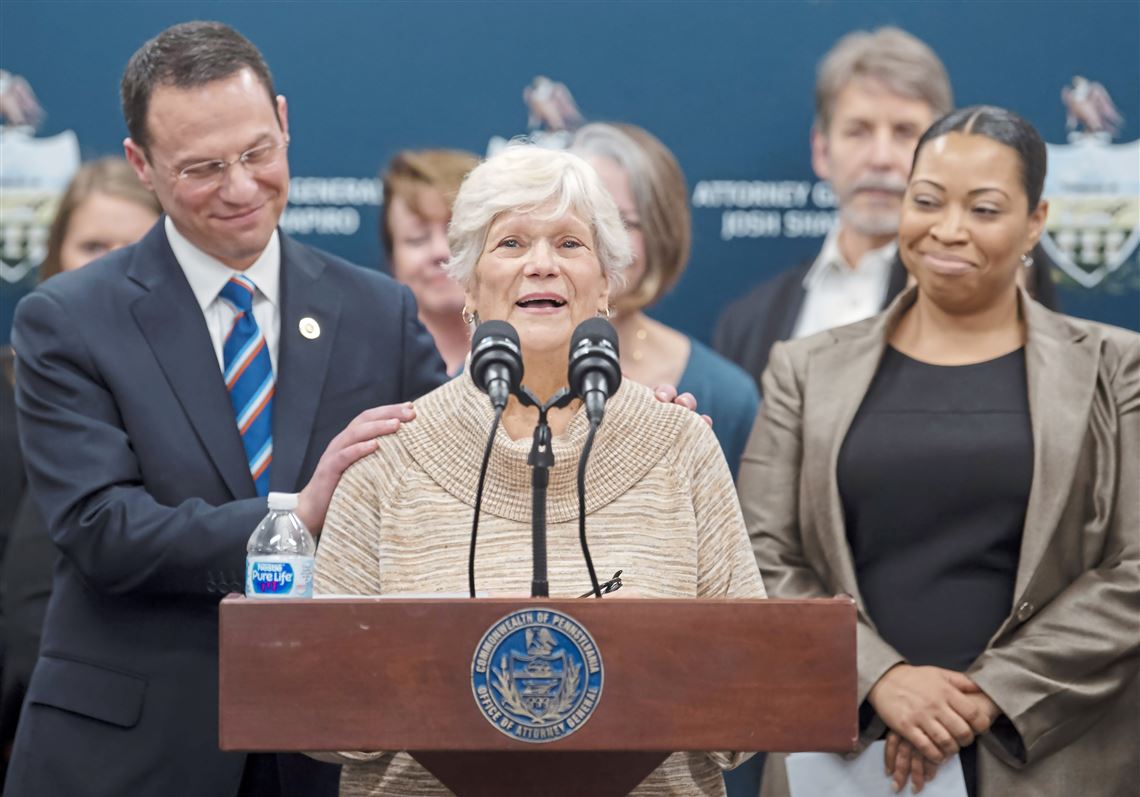Snapping up dozens of small hospitals fueled UPMC’s stunning growth for decades, creating a U.S. health care giant, with few speed bumps along the way.
That’s about to change.
UPMC’s bid to merge with Washington Health System, 30 miles southwest of Pittsburgh, which was announced Wednesday, will likely face stiff blowback from organized labor and some elected officials at a time when newly energized federal regulators have been taking a harder look at hospital mergers. Things are heating up quickly.
SEIU Healthcare Pennsylvania, UPMC’s longtime nemesis, fired the first salvo in blocking the health care juggernaut a month before the WHS merger was even announced.
A request to the U.S. Department of Justice in May for an investigation into UPMC by the SEIU and the Strategic Organizing Center is a virtual blueprint for challenging UPMC’s acquisition of WHS. Citing UPMC’s record of growing by taking over smaller hospitals, the request for an investigation into alleged anti-competitive practices at the health care giant — the biggest private employer in Pennsylvania — said UPMC has a “long and egregious history of labor law violations.”
The union called UPMC a “recidivist labor law violator.”
SEIU declined to comment on its plans.
UPMC spokesman Paul Wood said the system was “looking forward to working with the regulators — the attorney general and the Federal Trade Commission — to answer any and all questions they may have.”
All of WHS’ existing contracts will be honored by UPMC “once this affiliation is complete,” he said.
SEIU, which represents about 300 janitors, caregivers and dietary workers at WHS and nurses at UPMC McKeesport and other hospitals, has been trying unsuccessfully for many years to organize hourly workers at UPMC’s flagship Presbyterian hospital.
The bruising Oakland campus campaign has been an open sore for the union, marked by 133 separate unfair labor practices against UPMC since 2012, according to SEIU. Among the complaints were 15 claims that UPMC illegally fired workers for participating in union activity.
“If, as we believe, UPMC is insulated from competitive market pressures, it will be able to keep workers’ wages and benefits — and patient quality — below competitive levels, while at the same time continually imposing further restraints and abuses on workers to maintain its market dominance,” according to the unions’ complaint. “It has done so because it can.”
Mr. Wood said UPMC was raising its entry level, nonunion wage to $18 an hour for Pittsburgh area employees in early 2025, which will be the highest of any health care center in the state. The system also offers employees a robust package of benefits, while absorbing most of the medical plan costs for workers.
UPMC’s history is one of lightning growth, which transformed Pittsburgh into a U.S. health care mecca.
Between 1996 and 2019, UPMC merged with 27 hospitals, including an “acquisition spree” starting in 2016 that swept 10 hospitals into the UPMC fold within two years, according to SEIU. As a result, UPMC controls 55% of the health care market in the seven-county region around Pittsburgh based on Medicare revenue. That dominance includes Washington County where UPMC’s latest hospital merger is planned.
UPMC’s shadow in Allegheny County is even greater, where it controls 59% of licensed hospital beds.
“The goal of our affiliations is to keep care local and to serve the community,” Mr. Wood said.
But according to the SEIU complaint, size has given UPMC unfair leverage in the labor market: Across general hospital workers combined, a 10 percentage point increase in UPMC’s market share in a given area translates into an average pay reduction of 30 cents and 57 cents per hour, a union survey of hospital workers 2011-2020 found.
The Federal Trade Commission is no stranger to health care monopoly and labor.
“There is a growing body of empirical research about the potential for competitive harm to labor markets from consolidation and concentration,” FTC Commissioner Rebecca Kelly Slaughter and chair Lina M. Khan wrote in a joint 2022 statement about the merger of the first and second biggest health care providers in Rhode Island. “The loss of competition from mergers may be especially pernicious in the health care sector where skilled medical professionals are uniquely limited in employer options within their local geographic area.”
In the Rhode Island case, the two health care giants dropped plans to merge after the FTC sued to block it.
UPMC also faces testy relations with elected officials in its expansion plans, including Gov. Josh Shapiro, who as Attorney General headlined campaign stops with SEIU members and battled UPMC over access to UPMC’s hospitals and doctors for people with Highmark health insurance.
In February 2019, Mr. Shapiro stood with terminal cancer patients at a news conference in Pittsburgh who’d been cut off from UPMC doctors because they had Highmark insurance. He eventually took the dispute to Commonwealth Court to force UPMC to contract with all health insurers.
The dispute, which had been festering since 2011, was finally resolved in June 2019 with a 10-year agreement between Highmark and UPMC that Mr. Shapiro helped broker.
At the same time, SEIU was flexing its political muscle, spending millions of dollars in organizing over several election cycles for what the union called “massive field organizing programs” that helped elect a slate of UPMC critics to state and federal office, including U.S. Sen. John Fetterman; U.S. Representatives Chris Deluzio and Summer Lee; and state Sen. Lindsay Williams, all of whom have joined SEIU pickets at UPMC’s Downtown headquarters on Grant Street.
Things aren’t much better for UPMC in the city where Pittsburgh Mayor Ed Gainey, who recruited former SEIU organizers to his administration, has publicly snubbed the health care giant by avoiding groundbreaking and ribbon-cutting ceremonies for multi-million dollar medical facility projects. His administration is also challenging the tax exempt status of some UPMC properties, which was a campaign promise.
Michelle A. Henry, a former Bucks County prosecutor who Mr. Shapiro tapped as Attorney General when he left for the governor’s mansion in January, will review the UPMC-WHS deal as part of the office’s mission to protect charitable assets. But how she will approach the review is unclear.
“I can say on the record that this transaction will be thoroughly reviewed within the antitrust and charity parameters,” spokesman Brett Hambright said in an email. “I would not want to speculate on any potential action or offer commentary.”
UPMC wasn’t alone in gobbling up hospitals over the years: the share of community hospitals in the U.S. that were part of larger health systems reached 67% in 2019 compared to just 10% in 1970, according to an analysis that appeared last year in the journal Health Affairs. Studies have shown that such acquisitions generally increase the cost of health care while decreasing quality.
But the regulatory standard for hospital mergers had long been whether the tie-up hurts competition in an area surrounding the hospital, sometimes an area no bigger than a county.
By that measure, the proposed UPMC-WHS merger would pass with flying colors since Allegheny Health Network operates a hospital about five miles away, so the deal would have no effect on competition since AHN is a WHS market rival.
But in recent years, a new standard in making these assessments has been taking shape — and a newly energized FTC has been itching for a case to road test the idea — according to Thomas “Tim” Greaney, visiting professor of law at the University of California Hastings College of Law in San Francisco.
“The country has put its faith in a competition-based model for health care, and that will result in better cost and quality,” he said. “But once you have a certain concentration of health systems, those incentives dissipate.”
Driven by President Biden’s executive order in 2021, which encouraged the Justice Department and FTC to “review and revise merger guidelines to ensure patients are not harmed by such mergers,” federal regulators have begun to consider other effects on competition of so called “cross-market” hospital mergers — like the proposed UPMC-WHS match — where the acquiring health system gains anti-competitive bargaining power with commercial health insurers by bulking up.
“For decades, health care mergers of all kinds have been permitted to proceed unchecked, allowing health systems across the country to accumulate market power,” Mr. Greaney and co-authors wrote in the April issue of the Hastings Law Journal. “Over the last decade, however, economists have found evidence that certain cross-market health care mergers are associated with significant post-merger price increases.”
Size gives health systems a bigger stick to wield in contract negotiations with health insurers, a “kind of leverage that has gone completely unchallenged forever,” Mr. Greaney said.
The FTC typically only challenges 1% of hospital mergers, so it’s unlikely the UPMC-WHS deal will make a blip on the agency’s radar. Nevertheless, the case is one to watch, Mr. Greaney said.
“On its face, it’s a good one,” he said about the UPMC-WHS deal. “I’ll be following this one closely.”
Kris B. Mamula: kmamula@post-gazette.com
First Published: June 25, 2023, 9:30 a.m.
Updated: June 26, 2023, 5:22 p.m.




